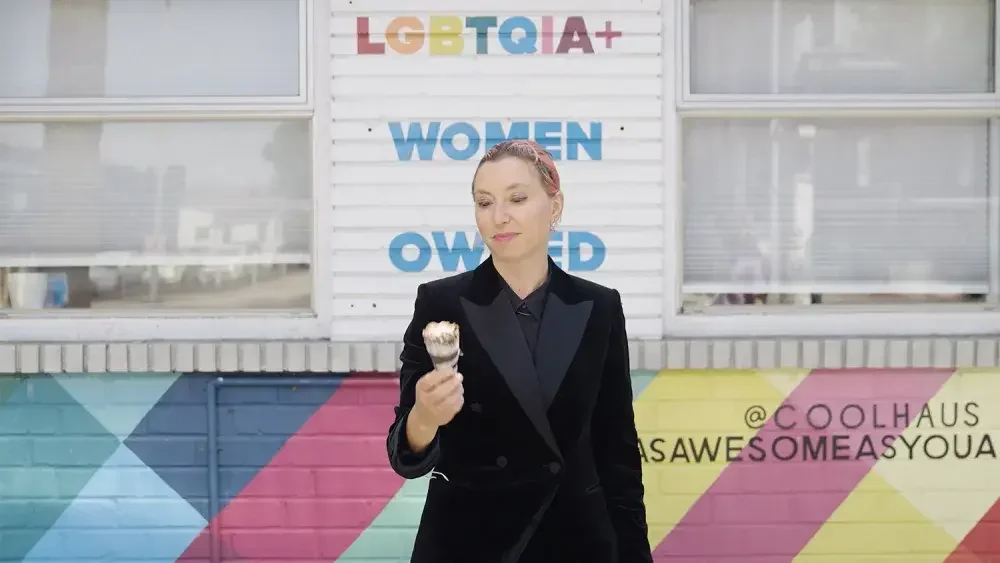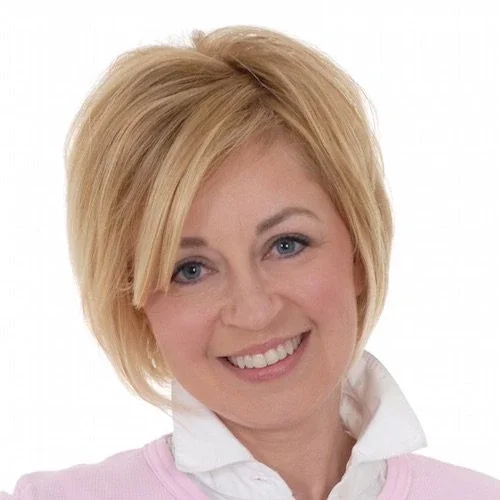On the surface, ice cream and architecture may not seem to have many similarities, but a passion for both is what inspired Natasha Case to cofound the ice cream brand Coolhaus with her partner and wife, Freya Estreller.
Case always had a knack for creating extreme ice cream sandwiches, combining unique flavors. After earning a Master's in Architecture from UCLA in 2008, she put her plans of designing buildings on hold to pursue her love of ice cream. She and Estreller purchased a postal van on Craigslist for $2,500 and transformed the beat-up vehicle into a colorful ice cream truck.
“We thought, let's go big or go home," Case recalls. “Let's take this thing to the desert."

Driven by sheer determination, the pair launched their brand at the 2009 Coachella Music Festival, where they sold architecturally inspired ice cream sandwiches with names like Mies Vanilla Rohe, Mintimalism, and Cara Mia Lehrer. The crowd of 100,000 loved it, and the brand went viral, leading Case to trade in her architect's pencil for an ice cream scoop.
Adding your personal flavor
Part of what makes a product great is connecting it to your own story. For the Coolhaus founders, ice cream has become a canvas for creativity and sharing messages. Case says the brand also reflects the couple's unique point of view about ice cream and business—one that has evolved over time.
“When we first started Coohaus, it was about us being architects," says Case. “People were reinventing themselves coming out of the recession and that felt more relevant. Right now, it's about being women founded and led, and more and more it's also our queer story."
Businesses provide owners with a way of sharing personal values. For Case and Estreller, these include diversity and inclusion.
“Part of why we wanted to start Coolhaus was to create something that felt more inclusive and diverse than a lot of the brands that were on the shelf at the time," says Case. “We have a different background than most people, and we knew it. We are not shying away from that and, in fact, we are leaning into it. We've made those pillars of the business over the years as opposed to just a starting place."
While diversity and inclusion are found in the Coolhaus team and culture, it's also on the menu. For example, the brand created a special pint for Black Girl Ventures called Currency Cake, with proceeds helping fund grants for black and brown female entrepreneurs. The company created another pint for Pride Month—a colorful and rainbow-like ice cream in mint green with purple marshmallows.
“Purple was chosen to celebrate the trans community," says Case. “We give back to an organization that helps give Black trans people nourishing meals. Doing flavors like these is really important to us. They also allow us to tell our story—that we're women founded and led, queer founded and led, and Freya is a woman of color. We build that into the packaging and make sure people know the origins."
Dotting the i's (in ice cream)
While a successful pilot can launch a brand, it takes more to sustain and support it. Debuting at Coachella gave Case and Estreller a fast lesson in business. “We were able to incorporate really quickly with LegalZoom and set up all the documents that the festival requires, like a seller's permit, health permits and articles of incorporation," says Case.
Having a strong legal foundation has also helped Coolhaus scale. Since its launch, the company has grown at a rate of two to three times per year, expanding its fleet to 10 trucks, launching two brick-and-mortar locations in the Los Angeles area, and distributing pre-packaged “sammies," pints, and bars to more than 4,000 grocery stores and restaurants nationwide, including Whole Foods, Safeway, and Kroger.
Sharing the inside scoop
Having a good idea is important, but Case says success hinges on its execution. “Is the brand going to give you a sense of purpose personally? Are people beyond excited and even obsessed with this idea?" she asks. “I think to succeed in business, whether it's a product or service, it needs to be something people will become obsessed with."
Running a business as a new entrepreneur is putting one foot in front of the other, even though you aren't sure of the next step, says Case. “If you have the drive, the curiosity, and the discipline, you can figure a lot out that you need to know," she says. “You've got to be willing to evolve very quickly."
And being a brand that stands for something helps, too. “I think there is a thirst today for brands that are authentic and genuine," says Case. “There's a thirst for brands that can be more representative. People are always going to want that, and they're much more dialed into stories of brands right now. I believe there can be an authentic connection between the creator and the consumer."

